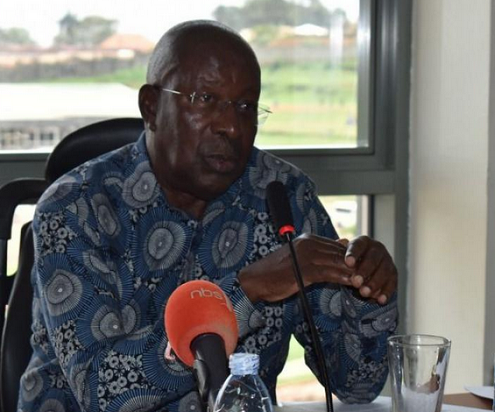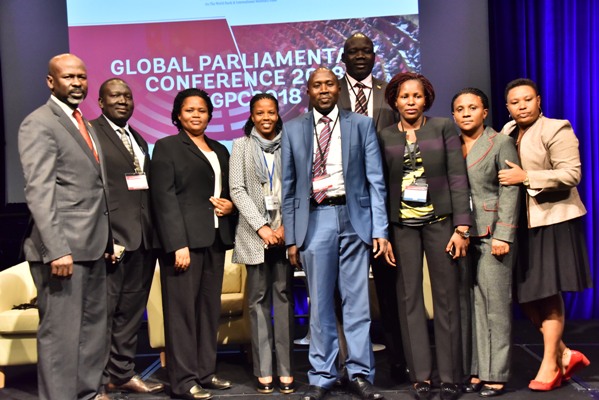The Amanya Mushega-led Education Policy Review Commission is on track to submit its final report by December, concluding four years of work aimed at reshaping Uganda’s education and sports sectors. Col (Rtd) Nuwe Amanya Mushega confirmed the development noting that the commission is prepared to present its findings to the government, emphasizing that their report will provide valuable insights.
“We are now in the final stages and will hand over our report to the minister by December,” said Mushega, who is leading a team of 12 tasked with drafting a new macro policy framework for education and sports in Uganda.
The commission was appointed in 2021 with an initial one-year mandate. however, it faced several challenges that hindered its progress, including limited resources and disruptions from the COVID-19 pandemic. As a result, the commission has been requesting and receiving extensions to continue its work.
As outlined in its terms of reference, the commission was tasked with investigating and examining various aspects of the education and sports sector. This included policy, planning, funding, access, implementation, management, quality, institutional and staff capacity, and legislation. Additionally, the commission was expected to develop recommendations to address the challenges therein.
Mushega said that throughout their work, the commissioners and support staff have been dedicated to fulfilling their mandate by thoroughly reviewing policies and conducting public hearings to gather diverse perspectives.
“We have received over 230 memoranda and conducted public hearings, traveling across the country to hear from as many Ugandans as possible,” he said. “We began our field work Busoga region and have since engaged with all the other greater districts, now referred to as sub-regions. In our discussions, the opinions of a farmer or a cleaner were just as valuable as those of a professor, and we believe this diversity of voices will be reflected in our report.”
The commission also undertook several benchmarking trips to countries in the region and beyond. For instance, they visited Kenya, Rwanda, Tanzania and Ethiopia, as well as far-off Finland.
Mushega emphasized the significance of benchmarking, asserting that it is essential for creating a document that reflects a comprehensive understanding of education systems elsewhere. He noted that Uganda’s education system cannot be viewed in isolation; rather, it should connect with and learn from other systems.
Mushega gives no guarantee
Last week, the commission conducted its final field visit, touring the Kigezi and Ankole regions where they engaged with various stakeholders, including learners, parents, education officers, and politicians. However, a critical question has arisen repeatedly: many people are seeking assurance that their views will be implemented, even if they make it into the final commission’s report.
The concerns among the public stem from the history of a similar commission established in 1987, shortly after the National Resistance Army took power. The Kajubi Commission conducted nationwide consultations and generated 202 recommendations that later informed the 1992 Government White Paper.
At the time, educationists and policymakers viewed the White Paper as a potential game-changer. However, 30 years later, many of its recommendations remain unimplemented. Dr. Yusuf Nsubuga, the former Director of Basic and Secondary Education at the Ministry of Education, described the White Paper as a “beautiful piece of art” that was never given a chance. Ultimately, the government only implemented about 40 percent of the recommendations.
“Will the recommendations from this commission be used?” Aggrey Barekye, the Mitooma district secretaryfor social services asked during a town hall meeting to Mbarara city last week, reflecting a concern that has been raised repeatedly since the start of the process.
In response, Mushega acknowledged the public’s concerns but emphasized that he could not promise any guarantees. He stated that the commission’s role is to gather views and compile them into a report, leaving it up to the government to decide which recommendations to implement when and how.
Common proposals to the commission
As the commission prepares to finalize its report, several critical proposals have emerged from their field visits and public hearings in Kampala. Among these recommendations is the call for free and compulsory early childhood education, along with stricter regulations in a sector currently dominated by private providers who operate with minimal oversight.
Many submissions have urged the commission to recommend that the government prioritize early childhood development (ECD) education. Currently, this responsibility largely falls on parents and private school owners, while the government’s role remains limited.
Mushega, who served as the Minister of Education when the 1992 White Paper was drafted, acknowledged that he initially believed ECD should be the responsibility of parents. However, he added that over time, and after engaging with experts and listening to various perspectives during consultations, he has reassessed his views.
“I’m the same person, but my thinking on different aspects of education has evolved—some of it through my own reflections and other insights from listening to diverse submissions. More so on ECD. But, I assure you that the report will reflect the people’s proposals, not our views.”
Another prominent perspective has centered on curriculum and assessment, with calls for a regionalized approach. Many people and experts were noting that learners in different environments cannot effectively benefit from a one-size-fits-all curriculum and assessment system. Additionally, there have been calls to eliminate the Primary Leaving Examination, which is often viewed as unnecessary, especially since it does not encompass the entirety of basic education from Primary 1 to Senior 4.
The call for the vocationalization of education starting from primary school has also been a prominent proposal across the country. This idea has been proposed by several previous commissions, including the Kajubi Commission, but its implementation has consistently faltered due to a focus on examinable subjects in teaching and learning.
Additionally, there have been various proposals related to the funding of education, management of schools, regulating private involvement in the sector, enhancing inspection processes, and clarifying the roles of foundation bodies, among other issues.
Not the end of the road
Dr. Denis Mugimba, the Ministry of Education spokesperson, said that as the commission submits its report, Ugandans will need to be patient, as the proposals will not be implemented immediately. He noted that the submission will initiate a lengthy process involving discussions in various areas, including the cabinet and parliament.
Mugimba indicated that this process could take more than three or four years, or potentially even longer. He referenced the Kajubi Commission, which lasted from 1987 to 1989; although it submitted its report, it took the government until 1992 to release a new White Paper on education.
Mugimba further clarified that not all of Mushega’s commission recommendations will automatically be adopted as government policy. He said each proposal will undergo a thorough review, with some being accepted as is, others modified, and some potentially rejected altogether.
-URN






The report contains vital issues. If not all, then most of them have to be adopted for implementation, especially vocationalisation of education from primary through to secondary. Because the way primary education has failed, I lack words to express. It’s business oriented focusing on examination, full of abstracts. Thanks to Mushega and the team.